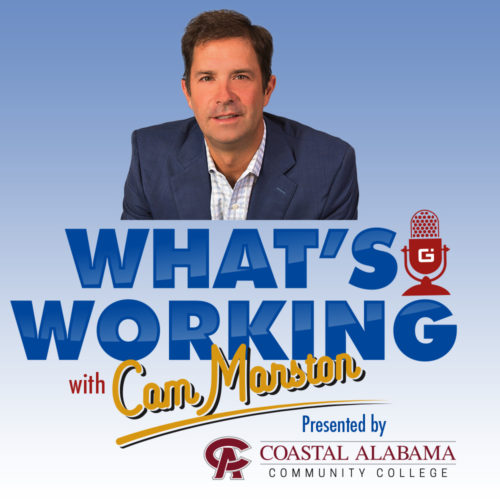
A ministry of hope: helping the marginalized find their way into the workforce
Posted On October 4, 2019
When many of us see panhandlers “flying signs” alongside the road, we only see someone looking for a handout. Matt Armbruster sees people who need someone to believe in them.
Armbruster, our guest in the latest episode of “What’s Working With Cam Marston,” operates Ransom Ministries, which teaches life and work skills to marginalized people such as the homeless, ex-convicts and recovering drug addicts to help them find work and re-integrate into society.
Armbruster, whose background is in restaurants, began his ministry in 2010 with Ransom Café, a donation-only eatery where the homeless and others could come to eat and pay whatever they could afford, or earn their meal through washing dishes and sweeping floors.
But he didn’t just cook for them. Armbruster took the time to listen to them and hear their stories. He also purposely became homeless himself for four days to see firsthand what they went through – an experience he recounted in his book, Life Outside the Boat.
Through this process, he became convinced that these people didn’t just want a meal, they wanted a chance. They wanted hope.
“I’m a firm believer that people want to do things,” he says. “We just don’t allow them sometimes, because it’s so much easier for us to hand them a dollar or $20 or a bag of food and not make them do anything.”
While the Ransom Café still operates in six locations around the Mobile and Baldwin County area, Armbruster decided to expand into what he calls a “reprogramming” ministry – teaching marginalized people the skills they need to get and keep a job and provide for themselves.
The program focuses on soft skills such as punctuality and body language, while also providing practical experience in an in-house computer recycling business and paying them while they learn.
Most of all, Armbruster says, he’s teaching them about character and trust. Character – reliability, honesty – are what employers tell him they’re looking for, and trust is what he has rebuild in his students before they can rebuild their lives.
“Our goal as a ministry, as a body, is to build the rung of trust of others,” he says, noting that while the program is faith-based, building trust is a prerequisite to discussing faith. “As we build rung of trust, then they start feeling better about themselves. And then they’ll trust Christ or they’ll go to faith, because you can’t just jump to faith without trusting people, I believe.”
Armbruster shares how he built this ministry, how he copes with its inevitable ups and downs, how he finds employers for his students, and a few of the success stories from among the more than 200 people who have gone through his program. He says about 75 percent of them leave with meaningful employment.
So join us for an uplifting discussion about lending a helping hand to people who have lost hope. And if you have any spare computers or electronics lying around that you’re looking to unload, visit ransomministries.com to learn how to donate to the cause.